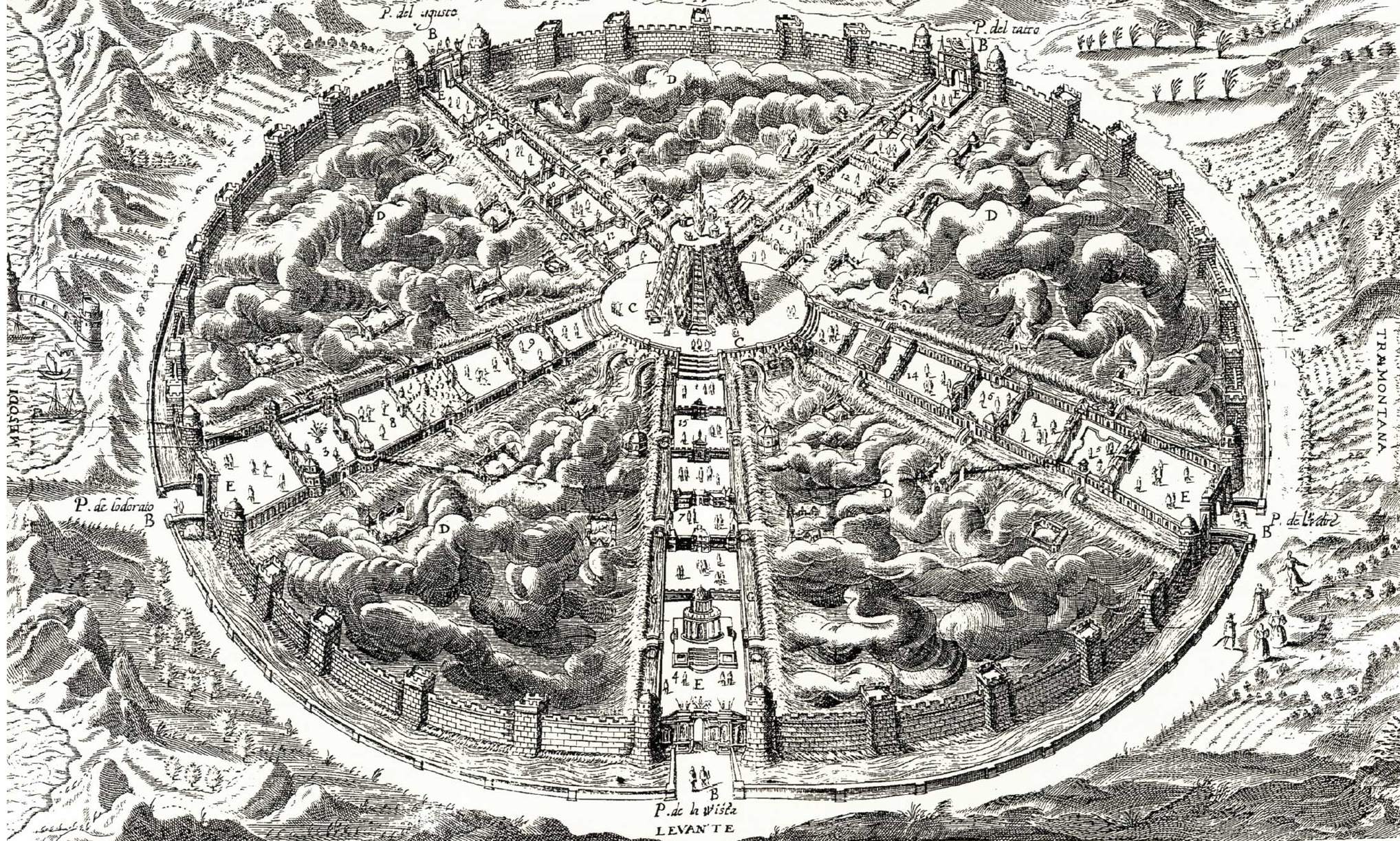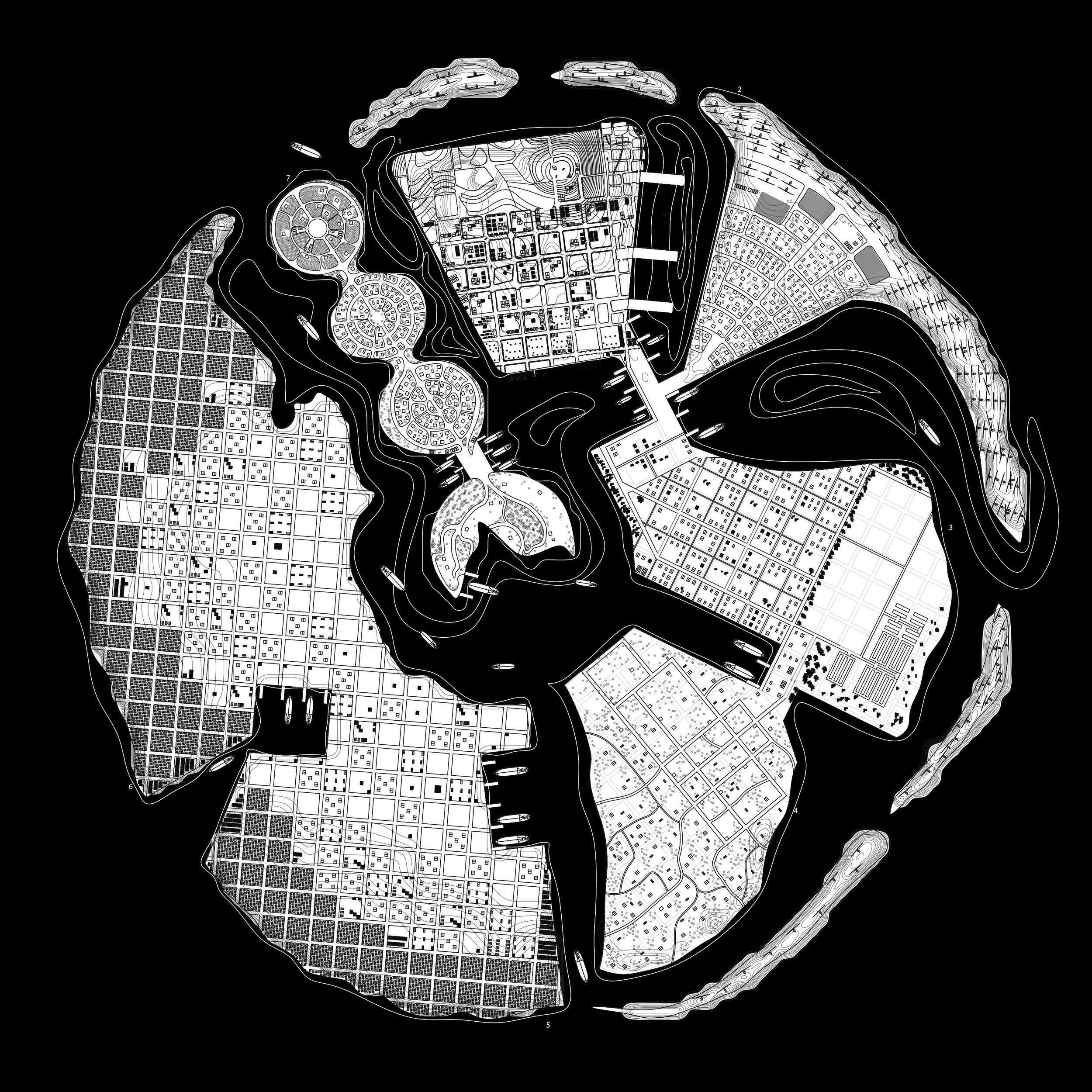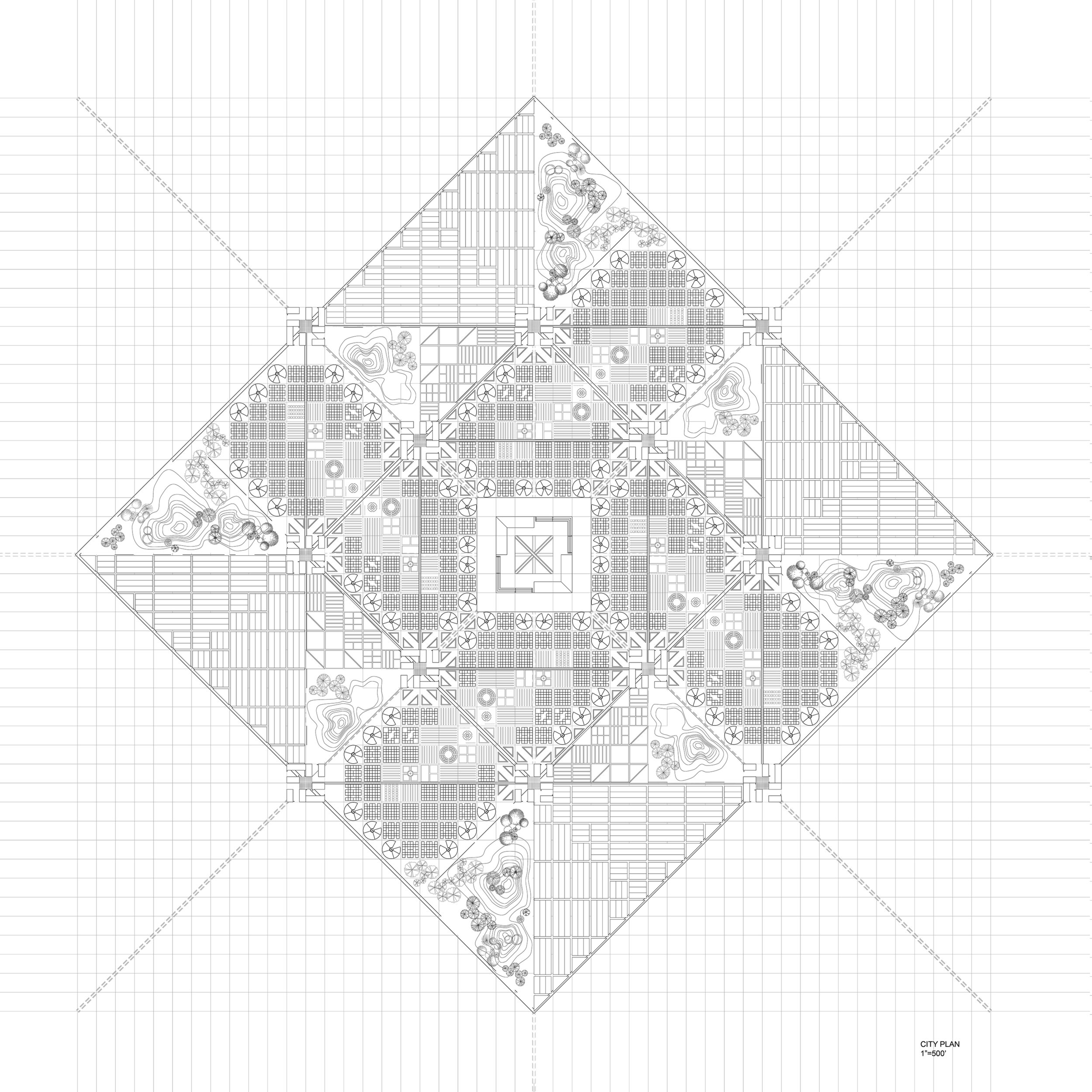PEGGY DEAMER WORKSHOP
Project: Peggy Deamer reconsiders the Campanella in a Workshop
Class: Workshop, California College of the Arts, Architecture Division
Date: Summer 2017
This workshop will reimagine the utopian city, City of the Sun, envisioned by Tommaso Campanella in 1602 after he was sent to prison for sedition. Utopianism itself has a radical political tradition, both Marxist and anti-Marxist, that challenges existing social, cultural, and economic norms with new, concrete solutions. Utopias are always problematic: they all border on dystopias; they all flirt with totalitarianism; they all declare things that are too personal and too strict. But they also make you consider what you DO think is ideal; what ARE the forms, laws, rules, conventions that strike the right balance between the individual and the collective. But Campanella Utopia is a particular wonder: in its extreme formal detail and deliciously pictorial idea of education, City of Sun lays out a vision that only architect/designers can really appreciate. And while many of his ideas are wacko, the ahead-of-its time view of communality, of classlessness, of positive notions of work, and (depending on your POV) on women and family, make relevant provocations.
Students will be asked to update (and rename) the City of Sun for the 21st century. Certainly you will have to dig deep into personal political convictions to consider a palpable domestic, educational, and political program, but, given that Campanella was exploiting the architectural and media conventions of his time to shape his ideal citizen, you’ll consider as well what centers, edges, walls, spaces, surfaces, materials, and apparati would be effective (and appropriate?) didactic tools today. While certain parameters of this utopia must remain stable (we aren’t starting from scratch), others will be discarded, transformed, and updated.
This workshop is part of the 333 Studio New Investigations in Collective Form organized and co-taught by Assistant Professor Neeraj Bhatia.
About the workshop series:
In 1964, Fumihiko Makia’s influential text Investigations in Collective Form elucidated three approaches to collective form compositional, mega-structure, and group form. In opposition to the lack of coherence, elasticity, and flexibility in the city, Maki attempted to create a theory that expanded beyond the singular building, inciting a discussion on Collective Form. For Maki, Collective Form is the relationship between buildings that cause them to be together. The term collective of course, also refers to a group or constituency with a shared interest. This common objective is at the core of politics.
This year’s 333 Studio will focus on the relationship between Politics and Urban Form. By politics we mean the relationships and goals that bind and separate us. By Urban Form we are referring to the organization of the city, its morphologies, infrastructures, and typologies. Lead by three influential urban thinkers and designers, Albert Pope (Rice University), Peggy Deamer (Yale University), and Rafi Segal (MIT) whose design-research focuses on alternative urban organizations in neo-liberal capitalism, that embed collective power within urban form, 333 will consider what makes the city more than a grouping of buildings and the public more than a grouping of individuals by developing and expanding the approaches to Collective Form.
Peggy Deamer is Professor of Architecture at Yale University. She has also taught at The Cooper Union, University of Kentucky, Barnard College, Columbia University and Princeton University, among other institutions. She received a B.Arch. from The Cooper Union and a Ph.D. from Princeton University. She is a principal in the firm of Deamer, Architects and her design work, along with that of her former partner, Scott Phillips, has been published in Progressive Architecture, House and Garden, The New York Times Magazine, among other journals and newspapers. Articles written by her have been published in Assemblage, Log, Perspecta, Harvard Design Review among other publications. She is the editor of Architecture and Capitalism: 1845 to the Present (Routledge) and The Architect as Worker: Immaterial Labor, the Creative Class, and the Politics of Design (Bloomsbury). She is co-editor of Building in the Future: Recasting Architectural Labor (Princeton Architectural Press) and BIM in Academia (Yale School of Architecture). She is the founding member of the Architecture Lobby, a group advocating for the value of architectural design and labor. Her current research explores the relationship between subjectivity, design, and labor in the current economy.




